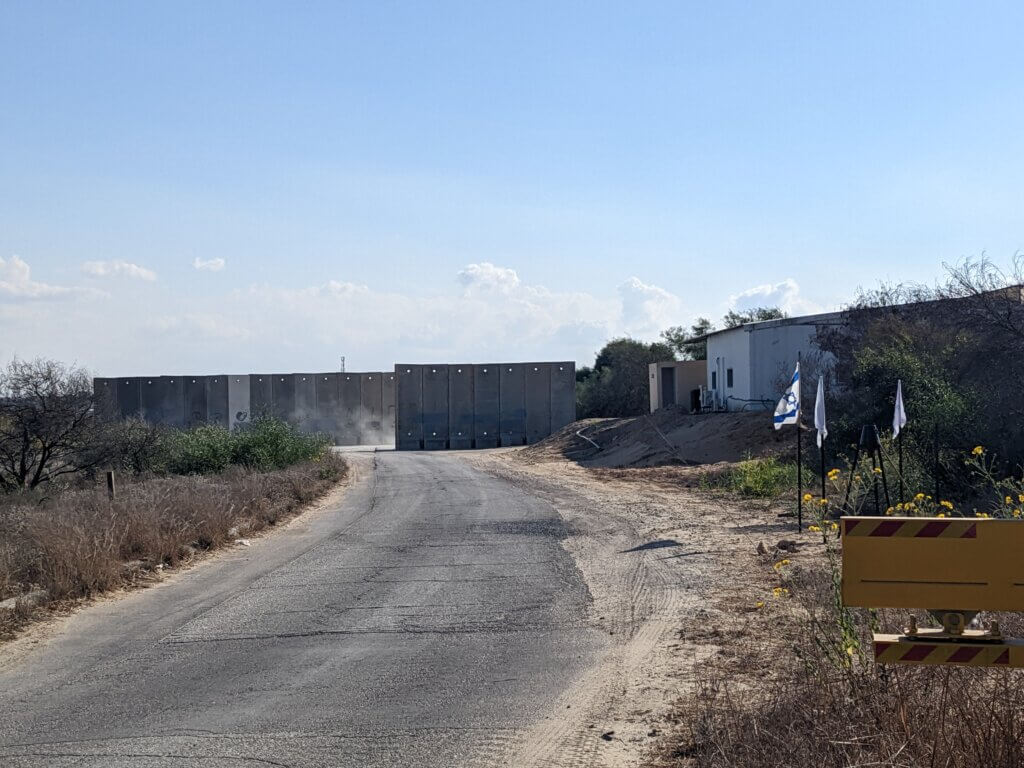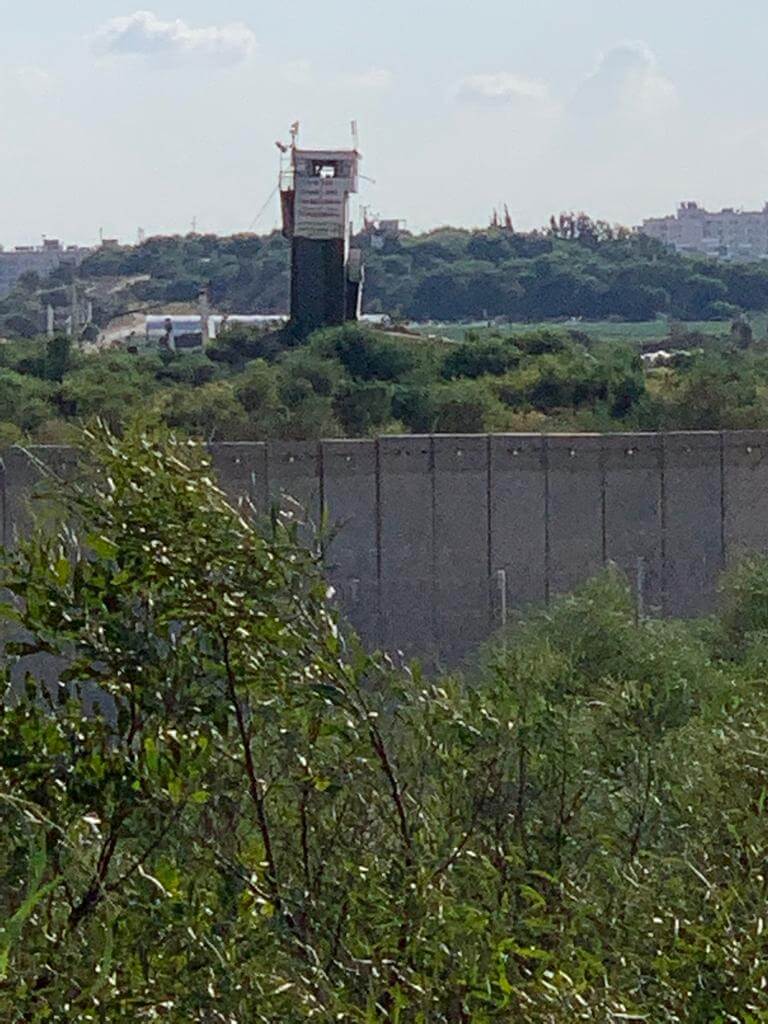There Is No Moral Equivalence
On Saturday, October 7, Hamas terrorists killed more than 1,000 Israeli civilians—men, women, and children—wounded thousands more, and seized more than 100 hostages. The Palestinian Arab terrorist organization fired thousands of rockets into Israel, killing Israelis indiscriminately, a murderous rampage that marks the bloodiest day in Jewish history since the Holocaust. Hamas even implored Israeli Arabs to continue the bloodshed by killing their Jewish countrymen.
Regardless of what happens next, not even time will heal the wounds of those in Israel devastated by Hamas’s terrorism.
Israel quickly declared war for the first time since the Yom Kippur War in October 1973, almost 50 years to the day. The Israel Defense Forces (IDF) responded effectively, countering Hamas’s attack with strikes of its own on the terrorists’ military targets in Gaza. But regardless of what happens next, not even time will heal the wounds of those in Israel devastated by Hamas’s terrorism.
Deceiving the Masses
It boggles my mind to consider how anyone could possibly continue to stand against Israel after what has transpired over the past week. In a war, armies attack each other. In an act of terror, people murder civilians. Clearly, Hamas committed terror by kidnapping and killing the innocent, sparking the war that has followed.
Yet many who mindlessly swallow up fabricated stories of Israeli oppression praise the Palestinian-led genocide campaign against Jewish Israelis. Israel’s enemies hail the calculated killing of regular civilians, including children, as an honorable achievement.
Many organizations and celebrities have thrown their public support to Israel and the Jewish people, a sensible stand given that it seems impossible not to side with these victims. But those with a death wish on Israel still refuse to see the truth. Scroll through Facebook, X (formerly known as Twitter), or Instagram, and you’ll find a litany of posts, many supported by thousands of likes and shares, insulting and cursing Israel and its people while praising Hamas terrorists.
Praising Terrorism as Liberation
With blind hatred, Palestinian supporters justify more than 1,000 murders by citing a corrupted version of history in which Hamas is a righteous voice for oppressed Palestinians who have been trampled by the racist apartheid State of Israel. But what is righteous about an unprovoked killing spree? What makes the kidnapping and torture of women, children, and elderly Israelis palatable? How can the beheading of dozens of Jewish babies be found acceptable?
Hamas builds its infrastructure in densely populated areas of Gaza, effectively using human shields as an insurance policy against the IDF’s retaliatory strikes. The terrorists set up shop next to hospitals, schools, mosques, and private homes, daring Israel to make a move that would cast the IDF in a poor light if any civilians near these military targets were harmed. Hamas has implemented this tactic many times, violating international humanitarian law.
Palestinian leaders have tried to brand Israel as a colonialist, occupying force, leading people to believe they can enact social justice by persecuting the nation. Hamas attempts to make Palestinian terror synonymous with the U.S. civil rights movement, creating a dangerous false equivalency that emboldens people with little knowledge of Israel to call for its annihilation.
Vindicating the Jewish State
In reality, Israel is the Middle East’s only democratic nation, surrounded by intolerant neighbors that endlessly seek its destruction. Too many rebels without a cause have foolishly hitched their wagon to the Palestinians, believing them to be enslaved to Israel. So they condemn Israel and praise terrorists, even when the facts that validate the Jewish state’s justice are right in front of them.
Israel’s enemies intend to portray the nation as an apartheid state in which Jewish people lord over and suppress poor Palestinians. Yet Israelis and Arabs reside and work side by side in Israel, a fact anyone can easily attest to after spending time in the nation. Two million Arabs—20% of Israel’s population—most of whom identify as Palestinians, live in Israel.
But no Jews live in Gaza today because they cannot survive there, despite a 2,000-year Jewish presence in this territory. In 2005, violent riots caused Israel to unilaterally withdraw its remaining 9,000 residents from their homes in the Gaza Strip, which Hamas took over in 2007 and has ruled ever since. Hamas leadership carries out attacks on Israel at the expense of supplying its civilians with food, water, and healthcare.
This catastrophe screams to us that war is never far from Israel’s doorstep. It confirms Israel’s tragic necessity for mandatory military service, as the little nation of 9 million faces incessant existential threats from countries far larger who constantly seek the opportune moment to strike the Jewish state.
“I will plant them (Israel) in their land, and no longer shall they be pulled up from the land I have given them” (Amos 9:15).
As people who love Israel, we are angry. God demonstrated His righteous anger often throughout Scripture; and likewise, we must follow the instruction to “be angry, and do not sin” (Ephesians 4:26). We seek peace—an end to the bloodshed that is ravaging the Holy Land. We seek justice—that Hamas would be subdued and held accountable for its crimes. And we seek redemption—that hearts would be moved to seek the Messiah in the midst of evil. We must bring these petitions to the Lord as we seek for His will to be done.
We can take great comfort in God’s promise to Israel: “I will plant them in their land, and no longer shall they be pulled up from the land I have given them” (Amos 9:15). God will preserve His Chosen People forever, and He has promised that the land of Israel will be their eternal home. We pray for the peace of Jerusalem (Psalm 122:6) and all Israel, knowing only He can deliver them from their deadly enemies once again.
If you feel called to help Israel find hope in these dark times, you can help save lives with a gift to the Israel Relief Fund. Thank you for your faithful support for Israel and the Jewish people.
Photo Credit: Ziv Koren/Polaris/Newscom

